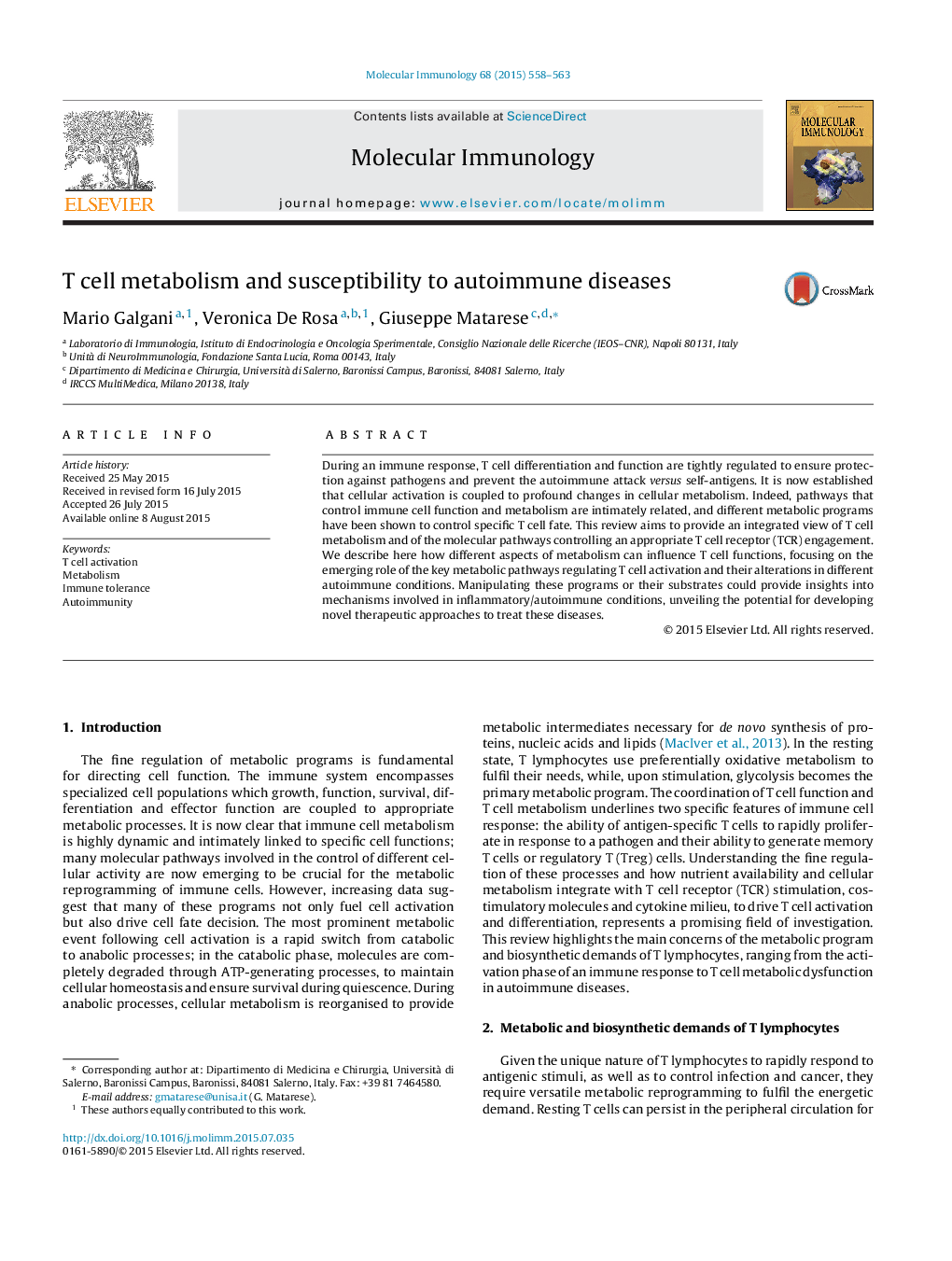| Article ID | Journal | Published Year | Pages | File Type |
|---|---|---|---|---|
| 2830672 | Molecular Immunology | 2015 | 6 Pages |
•Metabolism plays a key role in the regulation of T cell function and differentiation.•T cell receptor (TCR) engagement leads to a shift towards anabolic programs.•TCR strength is determinant for T cell fate.•Dysfunctional T cell responses associate with altered metabolic profile in autoimmune diseases.
During an immune response, T cell differentiation and function are tightly regulated to ensure protection against pathogens and prevent the autoimmune attack versus self-antigens. It is now established that cellular activation is coupled to profound changes in cellular metabolism. Indeed, pathways that control immune cell function and metabolism are intimately related, and different metabolic programs have been shown to control specific T cell fate. This review aims to provide an integrated view of T cell metabolism and of the molecular pathways controlling an appropriate T cell receptor (TCR) engagement. We describe here how different aspects of metabolism can influence T cell functions, focusing on the emerging role of the key metabolic pathways regulating T cell activation and their alterations in different autoimmune conditions. Manipulating these programs or their substrates could provide insights into mechanisms involved in inflammatory/autoimmune conditions, unveiling the potential for developing novel therapeutic approaches to treat these diseases.
